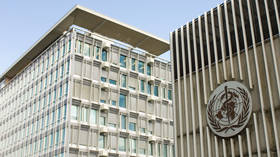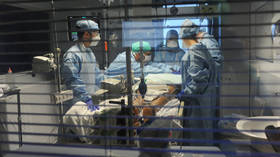WHO wants rich states to contribute to Covid-19 plan

The World Health Organization (WHO) has appealed to the leaders of the world’s richest countries, asking them to pay their fair share of the funding needed for the agency’s program to end the global Covid-19 pandemic as soon as possible.
The body announced on Wednesday that it needed more than $16 billion to bridge the funding gap for its ACT-Accelerator program, and said it could end the pandemic as a global emergency in 2022.
The Access to Covid-19 Tools Accelerator (ACT-A) is the WHO-led initiative that unites leading agencies in a bid to provide middle- and low-income countries with tests, vaccines, protective equipment, and other medical supplies needed to curb the pandemic worldwide.
Dr. Tedros Adhanom Ghebreyesus, director-general of the WHO, said the spread of the Omicron variant made it even more urgent to distribute medical supplies equitably around the globe.
“If higher-income countries pay their fair share of the ACT-Accelerator costs, the partnership can support low- and middle-income countries to overcome low Covid-19 vaccination levels, weak testing, and medicine shortages. Science gave us the tools to fight Covid-19; if they are shared globally in solidarity, we can end Covid-19 as a global health emergency this year,” he stated.
The ACT-Accelerator representatives have contacted all high-income countries and upper-middle-income members of the G20. Their “fair share” contributions are calculated individually for each state, taking the private sector and philanthropic institutions into account as well. The organization noted that the six 2020-2021 ACT-A budget countries – Canada, Germany, Kuwait, Norway, Saudi Arabia and Sweden – have all met or exceeded their commitments.
According to the WHO statement, only about 22 million tests, or 0.4% of the total number, were taken in low-income countries; and only 10% of people in these countries have received at least one vaccine dose.
“This massive inequity not only costs lives, it also hurts economies and risks the emergence of new, more dangerous variants that could rob current tools of their effectiveness and set even highly vaccinated populations back many months,” reported the organization.













